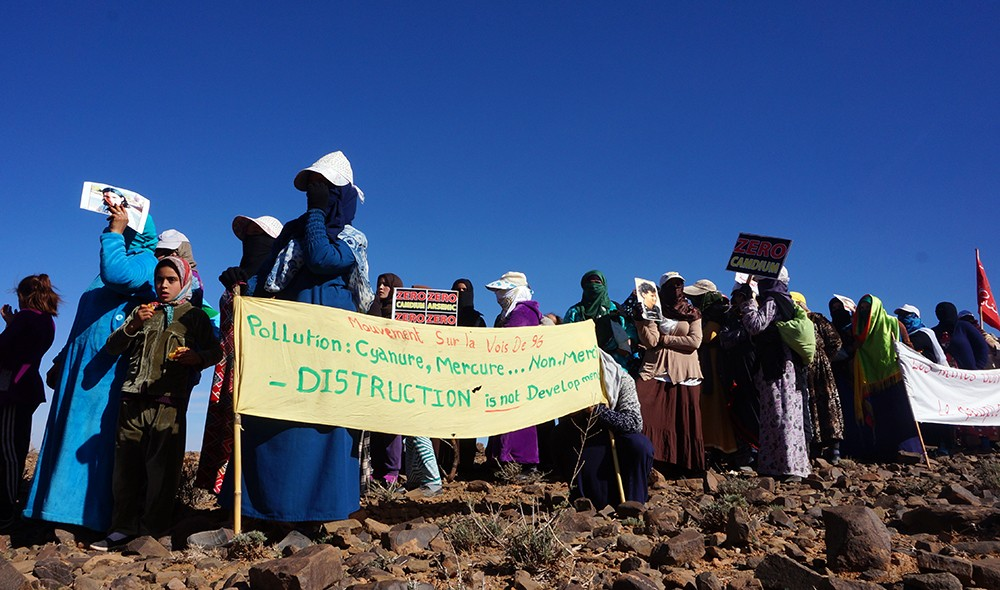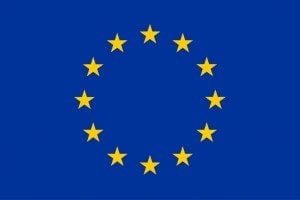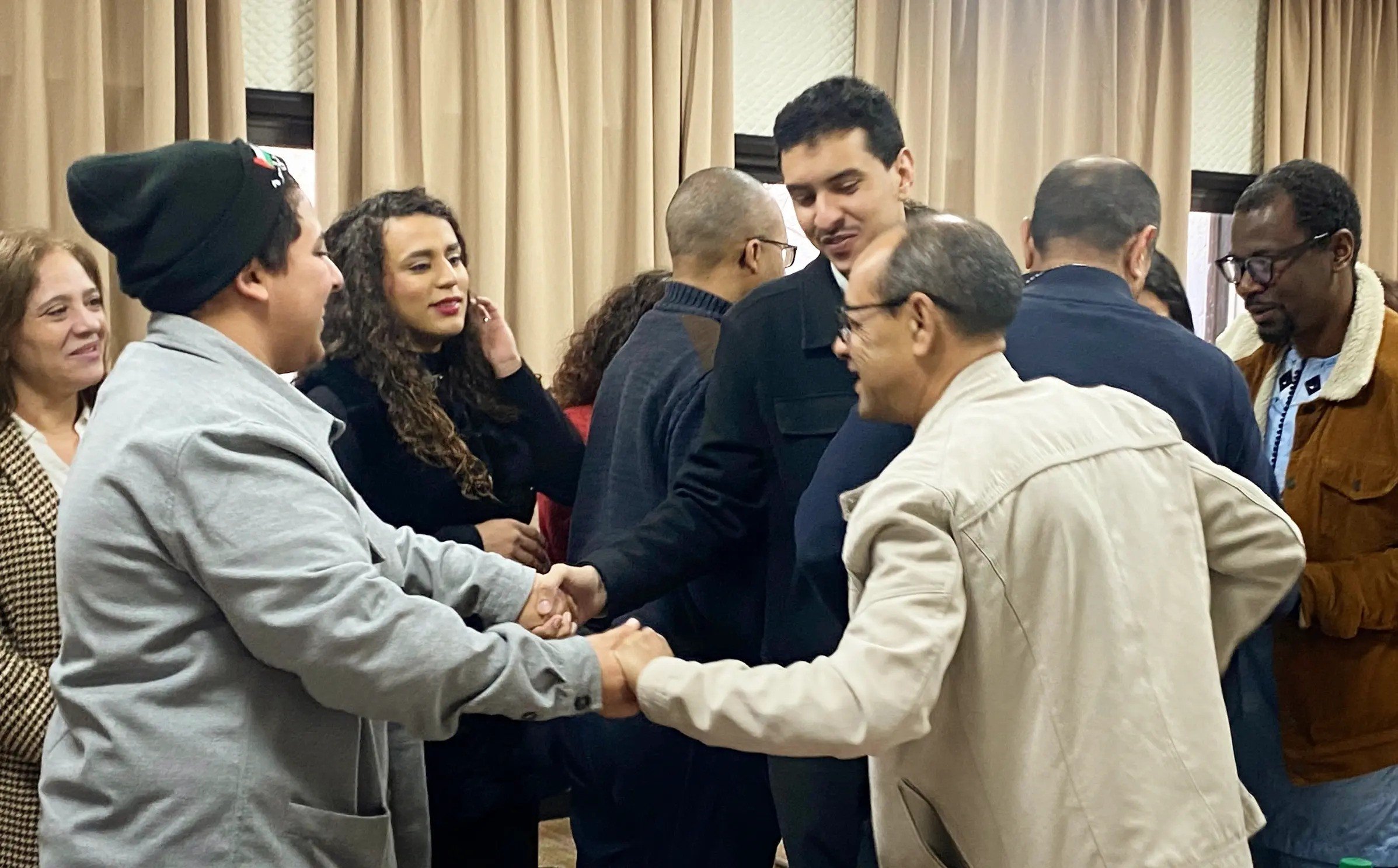
Minorities, Accountability and Civic Space (MACS)
Duration: 1 May 2023 – 30 April 2027
Communities: Various
What is this programme about?
This programme aims to strengthen civil society in the target countries so that it can more effectively and inclusively protect and promote the rights of minorities and other marginalized communities. To do this, it will financially support civil society organizations (CSOs) and build their capacity to contribute to processes of accountability and monitoring, and to advocate for inclusive reforms in Lebanon, Morocco, Palestine and Tunisia.
This will also improve their capacity to navigate the shrinking civic space in their respective countries. More specifically, the programme seeks to equip CSOs with the skills to effectively engage in the policy process; to advocate for and protect the rights of marginalized communities; to facilitate communities’ engagement in participatory democracy; and to increase cooperation and coalition building among CSOs.
Why are we delivering this programme?
Civil society organizations are facing serious challenges in the Middle East and North Africa region. First, many organizations are new, developing or under significant social and financial pressure, due to the sensitive nature of their work and harsh economic conditions. The situation is further impacted by a shrinking civic space fuelled by increasing state crackdowns on human rights defenders that severely constrain CSO operations and activities.
Second, low public engagement with civil society is another challenge faced by CSOs in the region. Their grassroots nature ideally places them to collect timely and reliable information of rights violations, which is instrumental in raising awareness about rights and helping marginalized communities secure better protection. Yet grassroots CSOs have limited funds and technical capacity to pursue advocacy strategies, as well as limited access to decision-makers.
Third, there is little scope for the development of a common coalition for support or protection network. In the repressing conditions outlined above it becomes more difficult to form and sustain coalitions between organizations. Links between civil society within and between the target countries are weak. Many CSOs are working largely in isolation, unaware of the work of other organisations representing discriminated groups in similar situations.
Last, grassroots CSOs are often far removed from high-level policy spaces. CSOs are key partners for EU institutions and Member States in promoting and protecting fundamental rights and democracy, but the limited or lack of consultation mechanisms for civil society in MENA countries, as well as limited or lacking CSO understanding of how to utilize them, has created a notable communication gap in the development of human rights policy.
What are we doing?
- Addressing gaps in the organizational and technical capacities of CSOs representing minorities and marginalized groups through core grants, organizational capacity trainings and mentoring schemes.
- Increasing and stimulating public engagement with CSOs and the production of evidence-based advocacy through operational grants and trainings.
- Making space for CSOs and providing them with resources in order to strengthen cooperation and coordination among CSOs on issues related to human rights, minority rights, democracy, and inclusive reform.
- Improving information flow between the EU and CSOs in target countries through the EU structural dialogue processes.
Who are we supporting?
Civil society human rights organizations that work to protect and promote the rights of minorities and other marginalized communities in Lebanon, Morocco, Palestine and Tunisia.
What we offer
- Urgent hardship grants: This fund provides support to organizations facing threats or harassment due to their work. This provision would help to address the unforeseen and challenging circumstances, which can occur at any time due to the restrictive civil space for human, and particularly minority, rights work in the target countries.
- Core grants: These operational grants support CSOs that have limited resources available for them to invest in their organizational development or to respond to external risks, emergencies or threats. The grants support emerging or struggling CSOs to operate efficiently during the time of the action.
- Institutional capacity building grants for training: These grants are awarded to CSOs in each target country to give institutional capacity training to the staff of organizations that have been granted core grants.
- Advocacy and public engagement grants: These are project-based grants that are offered to CSOs to implement activities central to the themes of human rights, governance and democracy.
- Grants for issue-based networks for policy influence: These grants are offered to like-minded organizations to form national networks and coalitions working to influence specific policies in target countries.
Who are our partners?
Attalaki is a Tunisian CSO founded in 2016 by young Tunisians belonging to different religious minorities. It is considered the leading organization in Tunisia working on freedom of religion and belief and a key player in defending the rights of religious minorities and making their voices heard.
Civic Forum Institute (CFI) is a Palestinian non-governmental and non-profit organization founded in 1998 whose work is focused on building democracy and developing democratic institutions throughout the Palestinian Territories.
Who is funding this programme?
The programme is supported by the European Union.
 Members of the Amazigh community take part in a peaceful protest against the Imider silver mine in Morocco. Credit: Linda Fouad.
Members of the Amazigh community take part in a peaceful protest against the Imider silver mine in Morocco. Credit: Linda Fouad.
 This content represents the views of Minority Rights Group only and is its sole responsibility. The European Union does not accept any responsibility for the use that may be made of the information it contains.
This content represents the views of Minority Rights Group only and is its sole responsibility. The European Union does not accept any responsibility for the use that may be made of the information it contains.
